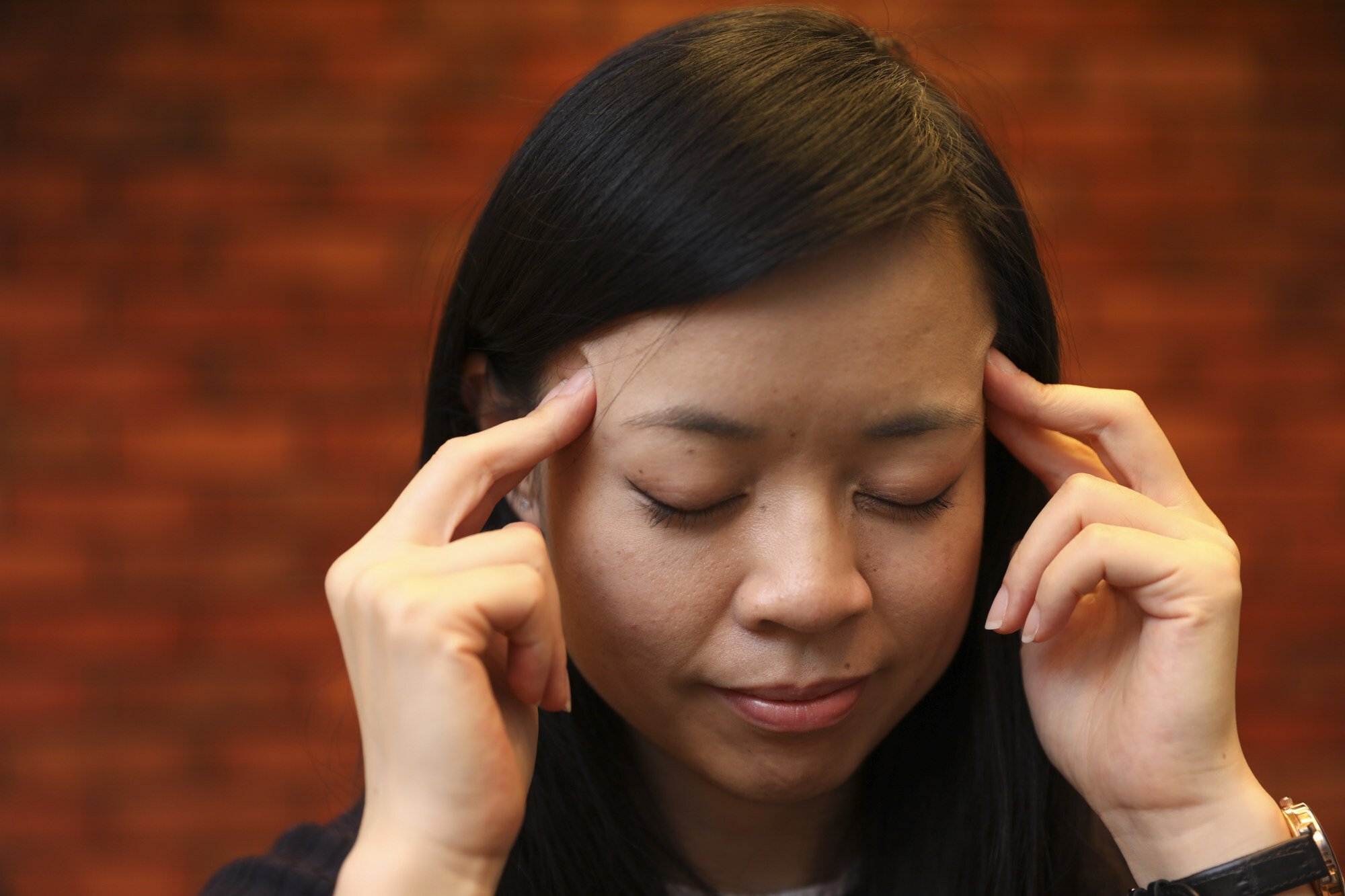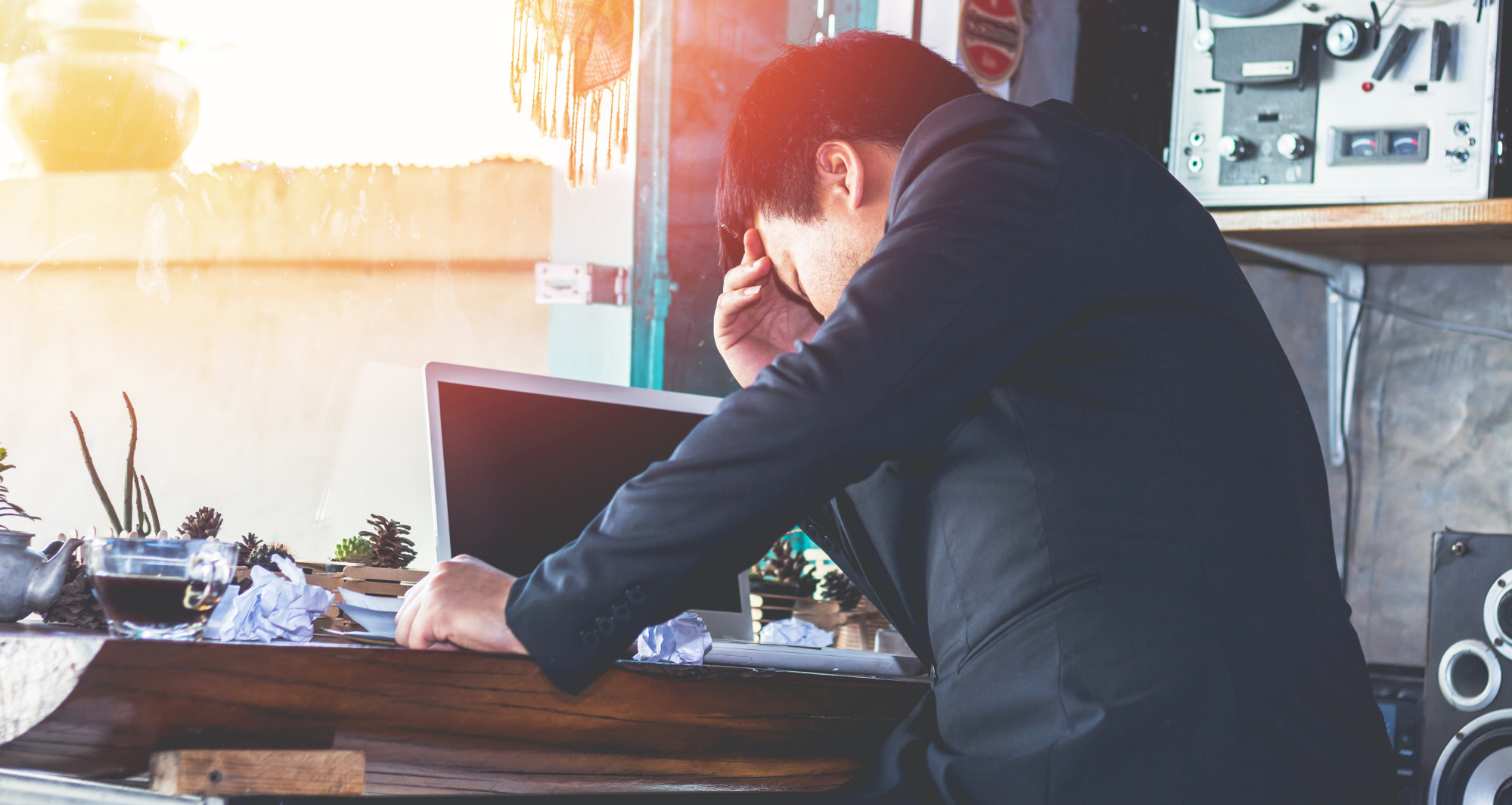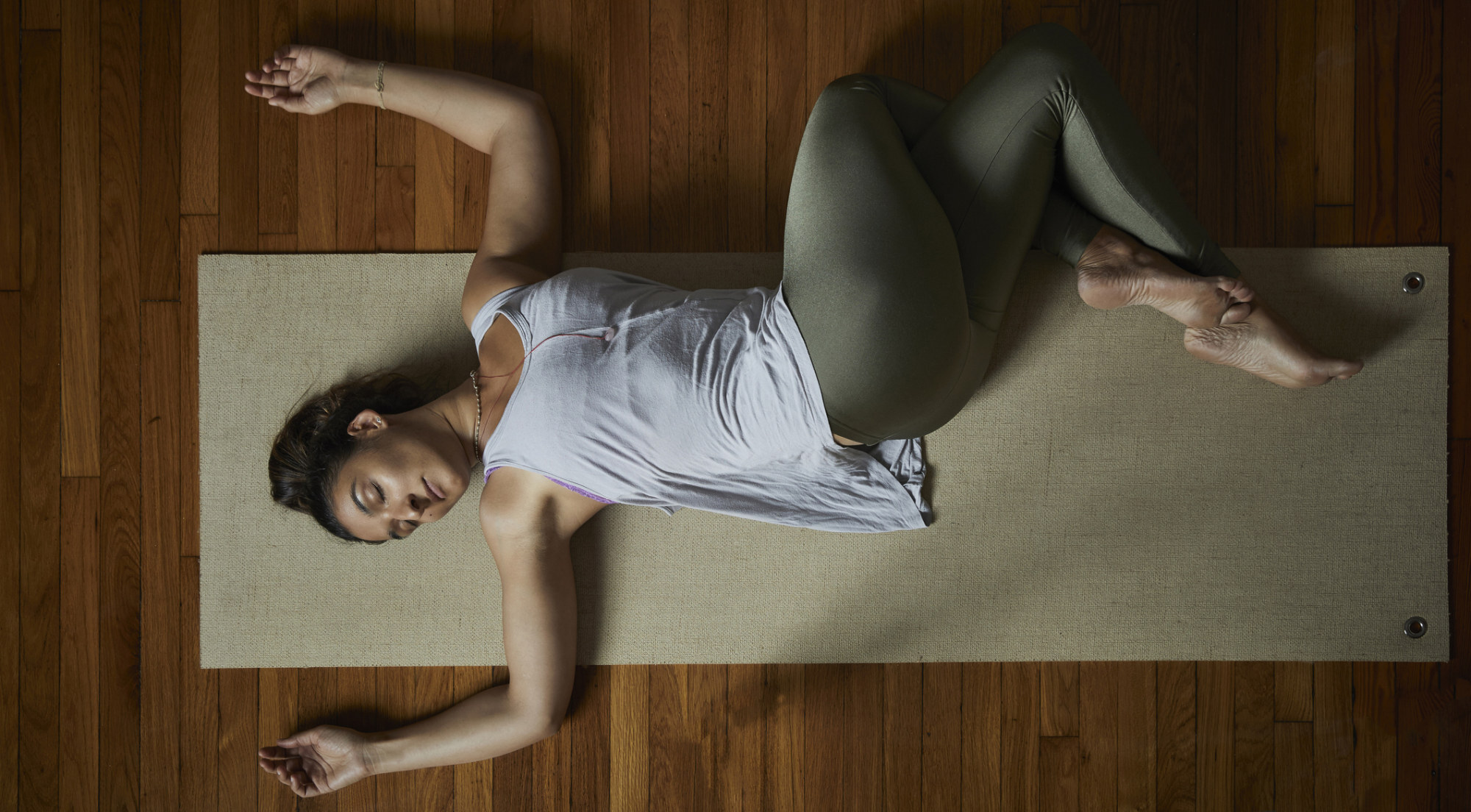
Having a panic attack? Stay calm and focus on your breathing to help regain control, expert says
- ‘I’m dying’ and ‘I felt like I was having a heart attack’, say two victims of their first panic attack – they often come on suddenly without any warning
- The global pandemic has heightened stress and uncertainty for many people, triggering more anxiety disorders, psychotherapist explains
At the height of Hong Kong’s fourth wave of Covid-19 infections, Sasha was working from home when suddenly her heart started thumping, her hands trembled over the keyboard and her vision went blurry.
“It came out of the blue. I thought, this is it, I’m dying,” says the 38-year-old, who works in finance.
Sasha – not her real name – had just had her first panic attack, a brief episode of intense anxiety which causes the physical sensations of fear. The sudden onset and the intensity of a panic attack can make it a very frightening experience, especially if it is your first one, but panic attacks are not uncommon.

“I’ve definitely noticed an increase in anxiety and stress-related issues in the last year, and some of those are struggling with panic attacks,” says Teresa Chan, a cognitive behavioural psychotherapist at Central Minds in Hong Kong.
The terms “panic attack” and “anxiety attack” are often used interchangeably, but Chan says that, while the symptoms are similar, they have different causes.
‘I’ve been feeling a lot better’: Jae Park on his mental health wake-up call
“Anxiety attacks are usually a gradual onset, a series of events or a build-up of stress, perhaps … from the pandemic, to the point where it spills over. The difference with panic attacks is that they are sudden and people often report not knowing what the trigger is because they come on so abruptly,” says Chan.
Sasha experienced some of the key symptoms – a pounding or racing heart, trembling or shaking, and blurred vision. Other symptoms include feeling faint or light-headed, nausea, struggling to breathe or feeling like you are choking, chills or hot flushes, dissociation (feeling disconnected) and jelly legs.
People who experience recurrent panic attacks with at least four of these symptoms are diagnosed as having panic disorder.
It came so fast, from nowhere. I suddenly felt really hot and sweaty and I couldn’t breathe. Then the room began to spin. I thought I was having a heart attack
Most panic attacks last between five to 20 minutes and usually peak within 10 minutes. They are often described as being like a false alarm because the body is preparing to do the right thing (getting ready to freeze, fight or flee from danger), just at the wrong time.
If you were facing danger – say, someone was about to attack you – you wouldn’t be worried about your racing heart because you’d be afraid of the attacker, and you’d assume your body feels differently because of the impending threat.
“Individuals often misinterpret these symptoms as more severe or life-threatening. People often report that at that moment in time they really believe they will die, pass out or have a heart attack,” says Chan.

Haruki had his first panic attack two months ago. The fintech executive, who works at a start-up, was experiencing a lot of stress both in the office and outside (his wife was pregnant and in their native Japan with their son). When the panic struck midafternoon he was at his desk and his colleagues called an ambulance.
“It came so fast, from nowhere. I suddenly felt really hot and sweaty and I couldn’t breathe. Then the room began to spin. I thought I was having a heart attack,” says Haruki, who also requested anonymity.
A doctor checked him and pronounced that he was healthy, but he had difficulty accepting that such intense symptoms were harmless and suspected he had a serious underlying health issue.
Why promoting Movember matters so much to this anxiety sufferer
“Learning and understanding what’s keeping that anxiety cycle going is half the battle. I do a lot of psycho-education about the fight-or-flight response,” says Chan.
“It helped a lot just to talk to her [therapist] and find out what was going on. I think after the first one I had a fear of having another one and that was almost worse. I was getting scared about going out in case it happened again,” says Sasha, who hasn’t experienced one for three months.

So what do you do if you or someone close to you experiences a panic attack?
The first step is to focus on the breath. Typically, when someone experiences a panic attack, they over breathe or hyperventilate, and that can fuel it. Slow down the breath by breathing in slowly and gently through the nose and out through the mouth, pursing your lips as if breathing through a straw.
What’s the key to better sleep and less stress? It’s how you breathe
“Try not to allow that overwhelming fear or panic to control you, reminding yourself that the symptoms, the discomfort are a normal and natural response to anxiety, and it cannot harm you, it will pass,” says Chan.
We can’t control the pandemic and the host of uncertainties it brings, but we can control how we take care of ourselves. Understanding what a panic attack is and what to do if you or a friend, colleague or family member experiences one gives us a little more control in an uncertain world.

